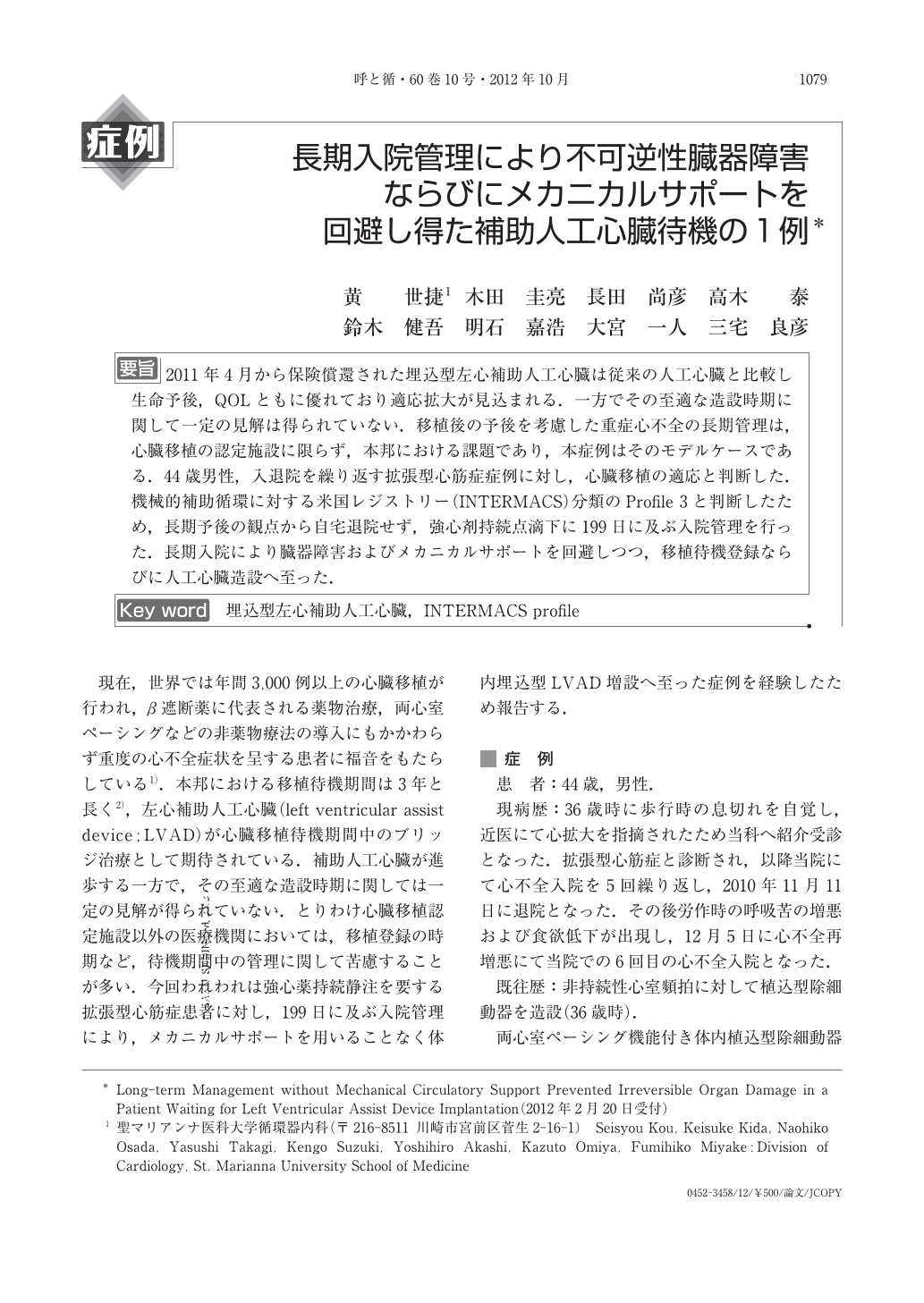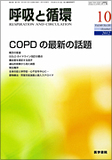Japanese
English
- 有料閲覧
- Abstract 文献概要
- 1ページ目 Look Inside
- 参考文献 Reference
要旨 2011年4月から保険償還された埋込型左心補助人工心臓は従来の人工心臓と比較し生命予後,QOLともに優れており適応拡大が見込まれる.一方でその至適な造設時期に関して一定の見解は得られていない.移植後の予後を考慮した重症心不全の長期管理は,心臓移植の認定施設に限らず,本邦における課題であり,本症例はそのモデルケースである.44歳男性,入退院を繰り返す拡張型心筋症症例に対し,心臓移植の適応と判断した.機械的補助循環に対する米国レジストリー(INTERMACS)分類のProfile 3と判断したため,長期予後の観点から自宅退院せず,強心剤持続点滴下に199日に及ぶ入院管理を行った.長期入院により臓器障害およびメカニカルサポートを回避しつつ,移植待機登録ならびに人工心臓造設へ至った.
Implantable ventricular assist device(VAD), which is approved for reimbursement in the Japanese government insurance system since April 2011, have provided favorable results including long-term survival and better quality of life in patients waiting for heart transplantation. The number of patients treated with VAD is increasing, although, indications for and timing of the implantation of a VAD have not been fully clarified in Japan.
Nowadays, long-term management of patients with severe heart failure is required not only in the approved transplantation center but also in other facilities.
This case report presents a 44-year-old man with dilated cardiomyopathy who repeated hospital admission due to recurrent heart failure. The detailed examination classified the patient into the Interagency Registry for Mechanically Assisted Circulatory Support(INTERMACS)profile 3 and suggested that he should meet the criteria for cardiac transplantation. Since the patient had the first priority in long term prognosis, he was under close observation and received inotropic infusion during the 199-day waiting period in our hospital, which prevented irreversible organ damage and maintained hemodynamic status without mechanical support. And then, the patient was transferred to the University of Tokyo Hospital and VAD was successfully implanted.

Copyright © 2012, Igaku-Shoin Ltd. All rights reserved.


